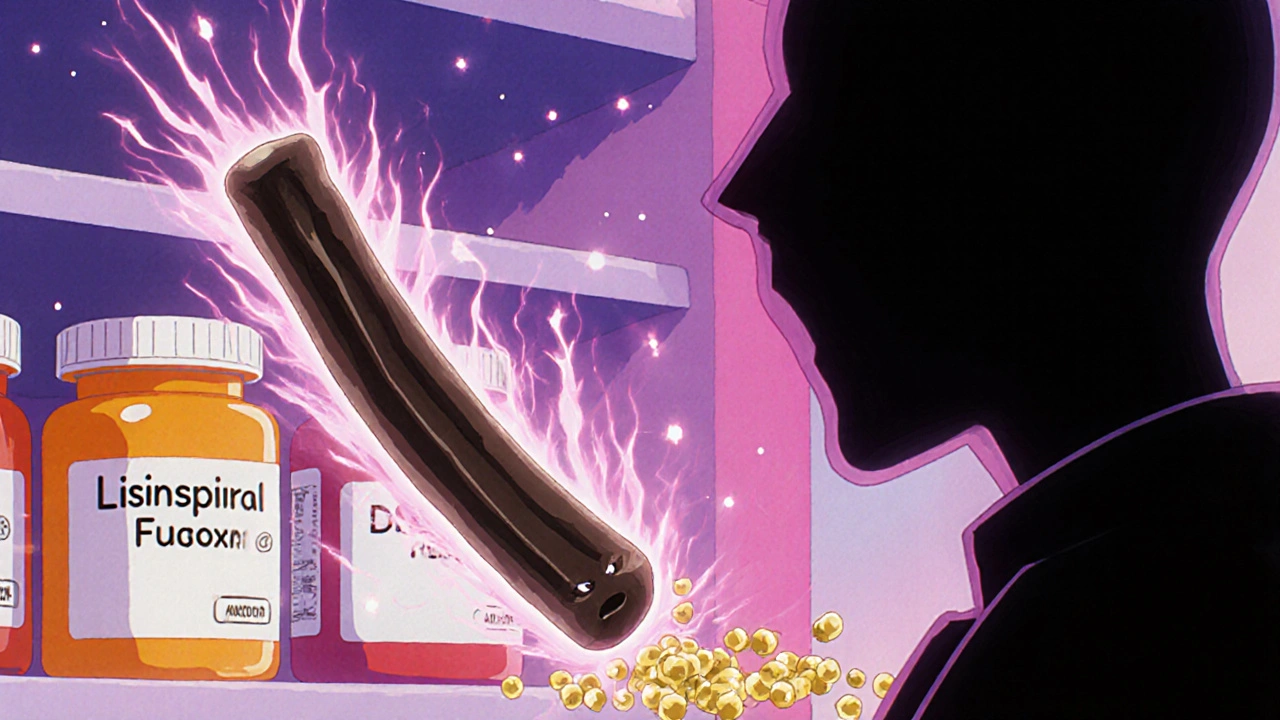Licorice Interactions: What You Need to Know About Medication Risks
When you chew on licorice candy or sip licorice tea, you might think it’s just a sweet treat. But licorice, a root used in traditional medicine and flavoring, contains a compound called glycyrrhizin that acts like a hormone in your body. Also known as glycyrrhizic acid, it can mimic aldosterone—a hormone that controls salt and water balance. This is why licorice isn’t harmless, especially if you’re taking other meds.
That same compound, glycyrrhizin, the active ingredient in licorice that affects hormone receptors and electrolyte balance, can cause your body to hold onto sodium and flush out potassium. Low potassium leads to muscle weakness, irregular heartbeat, and high blood pressure. If you’re on diuretics, medications like hydrochlorothiazide or furosemide that help your kidneys remove extra fluid, mixing them with licorice can make your potassium drop dangerously low. The same goes for blood pressure meds—licorice can cancel out their effects or make you retain fluid when you’re trying to lose it.
People on heart medications, steroids, or even antidepressants like SSRIs should be extra careful. Licorice doesn’t just play nice with one drug—it can interfere with how your liver processes many of them. It’s not just about candy. Licorice is in teas, supplements, throat lozenges, and even some herbal blends marketed as "digestive aids." You might not even realize you’re consuming it. And if you’ve been told to avoid salt, you’re probably being told to avoid licorice too—because it does the same thing.
There’s no magic number for "safe" licorice intake—it depends on your health, your meds, and how much you’re taking. A few pieces of candy once in a while might be fine for a healthy person. But if you’re on daily medication, even small amounts can add up over time. That’s why doctors often ask about herbal supplements and natural remedies during checkups. They’re not being extra—they’re trying to catch interactions before they cause trouble.
Below, you’ll find real stories and science-backed guides from people who’ve dealt with these exact issues—how licorice messed with their blood pressure, how they spotted the problem, and what they switched to instead. No fluff. No guesswork. Just what works.

Licorice may seem harmless, but its active ingredient, glycyrrhizin, can dangerously raise blood pressure, lower potassium, and interfere with common medications. Learn which drugs interact with licorice and how to stay safe.
Read More